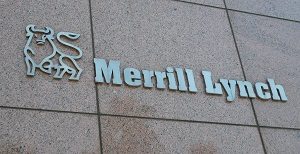Catch of the Week — Merrill Lynch Commodities Inc.

Merrill Lynch Commodities Inc (“Merrill”), a commodity trading subsidiary of Bank of America Corporation, agreed on June 25th to two $25 million settlements with both the Department of Justice (“DOJ”) and the Commodity Futures Trading Commission (“CFTC”) to resolve allegations it conducted deceptive trading practices in United States commodities markets.
DOJ Criminal Violations
This settlement resolved allegations that from at least 2008 to 2014, Merrill precious metals traders manipulated precious metals futures markets through spoofing. The traders placed orders for precious metals futures that they intended to cancel before they were executed to create fake market depth. This fake market depth induced other market participants to buy or sell futures contracts when they otherwise may not have done so. This spoofing resulted in Merrill traders placing thousands of fraudulent futures orders.
Merrill agreed to a non-prosecution agreement with DOJ where it agreed to pay $25 million in criminal fines, restitution, and forfeiture. Merrill’s parent company, Bank of America Corporation, agreed to assist DOJ in ongoing investigations of individuals, enhance their compliance programs, and report any additional wrongdoing. Independent of the settlement with Merrill, DOJ also indicted two Merrill precious metals traders, Edward Bases and John Pacilio in conjunction with this matter.
CFTC Commodities Exchange Act Violations
The settlement with the CFTC was parallel to the DOJ and covered the same time period and conduct by Merrill. The CFTC ordered Merrill to pay $11.5 million in civil monetary penalties, $2.3 million in restitution, and $11.1 million in disgorgement totaling approximately $25 million. James McDonald, the CFTC Director of Enforcement commented by saying “Today’s enforcement action shows that the Commission continues to aggressively pursue those who manipulate and spoof in our markets. If left unchecked, this sort of misconduct can undermine the integrity of the price discovery process, harm law-abiding market participants, and diminish confidence in our markets more generally. That’s why we will continue to keep our markets free from spoofing and manipulation.”
Analysis
This settlement highlights the continued enforcement efforts by both DOJ and the CFTC to combat market manipulation and spoofing in the precious metals markets. Market manipulation and spoofing have been hot topics for the CFTC in light of last years large settlements against Deutsche Bank and other banks. The DOJ and CFTC will continue to combat harmful influences on the commodities markets that distort those markets for all investors.
While this enforcement action was not triggered by a whistleblower, qualified individuals who bring a case under the False Claims Act or file a submission with the CFTC under the whistleblower provisions in the Dodd-Frank Act can be rewarded under the statute. Large settlements like this one provide one measure of the importance of whistleblowers in addressing fraud against the government. Whistleblowers are often in a prime position to provide information on improper conduct by their employers, competitors, or related entities that can lead to the government’s recovery of ill-gotten gains across the globe. Such recoveries ensure that commodities markets are traded on fairly, wrongdoers are held accountable, and investors are protected.
If you would like more information or would like to speak to a member of Constantine Cannon’s whistleblower lawyer team, please click here.
READ MORE:
- CFTC Whistleblower Program
- Deutsche Bank AG (DB AG) and Deutsche Bank Securities Inc. (DBSI)
- False Claims Act
- Our Posts About Market Manipulation
- Our Posts About Spoofing
- Whistleblower Reward Laws
Tagged in: Catch of the Week, CFTC Whistleblower Reward Program, FCA Federal, Importance of Whistleblowers, Market Manipulation and Trading Violations, Whistleblower Eligibility, Whistleblower Rewards,